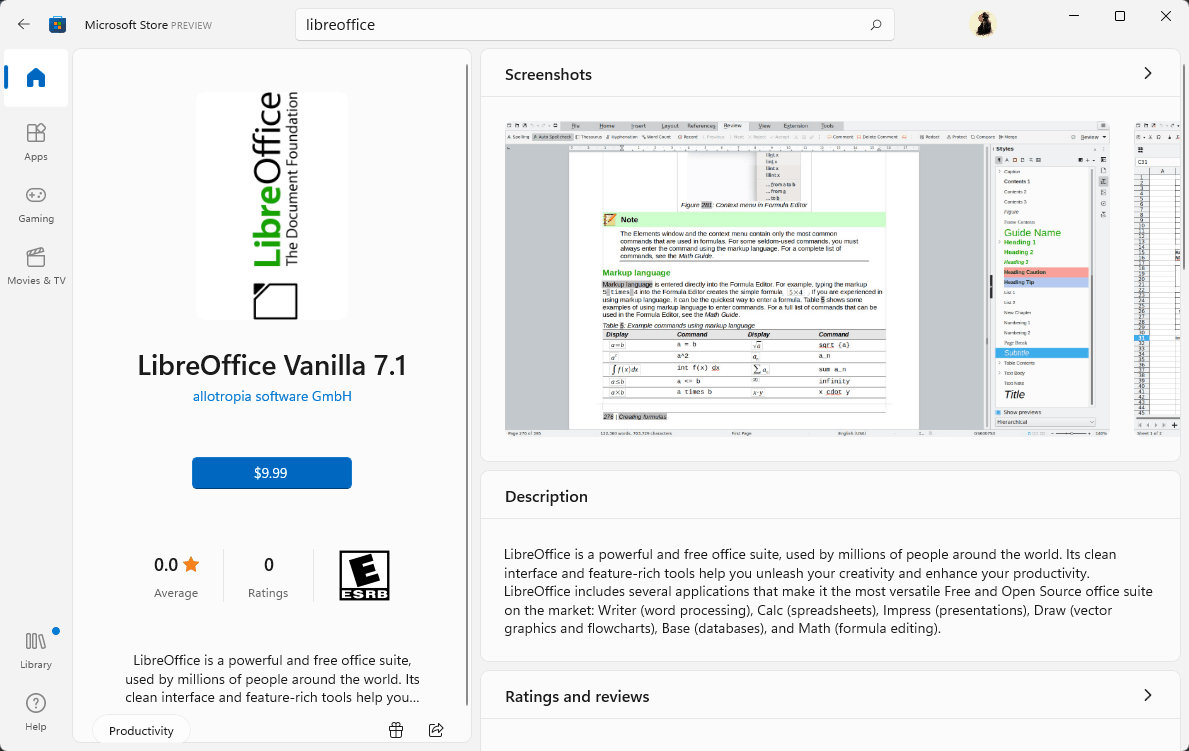When Microsoft launched its store, then called Windows Store, alongside its Windows 8 operating system, it became clear quickly that it did not have much to offer. The main issue of the store was the lack of applications and games. Popular applications like WhatsApp, third-party web browsers, gaming platforms, or open source applications were nowhere to be found in the Store. The situation did not change with the release of Windows 10.
The focus on UWP applications and Microsoft's lackluster attempts at promoting the store caused it to be ignored by the majority of Windows users. Microsoft tried several strategies to make the store more attractive, for instance by making it easier for developers to port their programs to the Store.
Still, the store did not take off. Microsoft renamed it to Microsoft Store, and that is what is still included on Windows 10 up to this date, and what will be included on Windows 11.

The release of Windows 11 brings major changes to the Microsoft Store. Probably the biggest of them all is that Win32 applications are allowed to be uploaded and offered via the Store. Microsoft announced the "more open" Microsoft Store today on the Windows Developer blog, and it reads almost like an apology in some parts.
Developers told us they love not having to re-write their existing desktop apps or change their business models in order to be part of the Microsoft Store on Windows.
Microsoft Store General Manager Giorgio Sardo highlights new apps that are already available, including Acrobat Reader DC, LibreOffice, Discord, Vlc, TeamViewer and others. In addition, Progressive Web Apps are also being added to the Store, with apps from Reddit, Wikipedia and TikTok available already.
The first two browsers are available as well. Opera and Yandex Browser can be downloaded from the Microsoft Store.
Another big change is that Microsoft changed its store policies to allow "third-party storefront apps to be discoverable" in the Microsoft Store. Amazon and Epic Games will bring their Stores to the Microsoft Store. Amazon's App Store will provide Windows users with access to Android applications, which Windows 11 will be able to run eventually, and Epic Games brings its gaming platform to the Microsoft Store.
The new Microsoft Store comes to Windows 10 at a later date as well.
The new Microsoft Store will launch to the public alongside Windows 11 on October 5th. It will also be available to Windows 10 customers in the coming months.
Is the new strategy a game changer?
Microsoft's strategic change could give its store a much needed boost. Windows users find popular apps and games on the Store once the changes land, something that has not been the case since the initial release of the store. The new apps, games and options improve the attractiveness of the Microsoft Store, but is it enough to gain a positive momentum and keep it?
The Microsoft Store is a central location for users of the operating system to download and install programs. Microsoft added other types of digital offerings to its store to make it more attractive and increase its revenue.
Is it enough to allow Win32 programs and third-party storefronts to make it a success? Why would users use the Microsoft Store to download these programs, when these are also available from the developer directly? Discoverability may be one answer, especially for users who don't know the ins and outs of the Internet.
The changes will make the Microsoft Store more attractive, there is little doubt about that. Time will tell if this is going to be the game changer that Microsoft is hoping it will be.
Now You: will you use the new Microsoft Store?
Thank you for being a Ghacks reader. The post Microsoft's latest attempt at making Microsoft Store more attractive could work appeared first on gHacks Technology News.


0 Commentaires